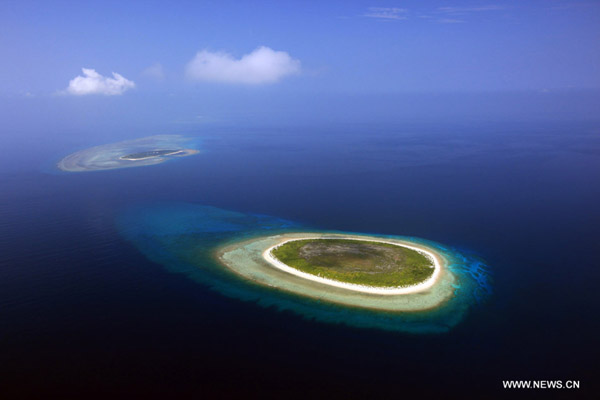US should stop its meddling in South China Sea
By Hannay Richards | China Daily | Updated: 2020-12-12 09:29

The current US administration's hostile containment policies toward China in the South China Sea have been to the detriment of not only the world's two largest economies, but also all other countries in the Asia-Pacific region.
As State Councilor and Foreign Minister Wang Yi pointed out at the 10th East Asia Summit Foreign Ministers' Meeting on Sept 9, it is the United States that is the biggest factor militarizing the South China Sea, and which, by interfering in the territorial and maritime disputes in the region and trying to pit countries against China, has been disrupting the efforts of China and the members of the Association of Southeast Asian Nations to peacefully resolve their disputes through consultation.
The maximum pressure campaign pursued by the US administration is akin to a black hole seeking to pull everything into orbit around the country. Although it has been motivated by ideology and the administration's own political expediency, in flexing the country's muscles and reinforcing its military deployment in the South China Sea, the administration's campaign jeopardizes the region's peace and stability, which countries in the region have made a priority to maintain.
While claiming to safeguard freedom of navigation and overflight, disturbing the stability in the region has been the motivation for the US administration's increasing militarization of the waters, as it fears a diminished role for the US in the region, perhaps even naval exclusion, if China and the ASEAN member states continue to boost the positive momentum in their relations.
For a country whose projection of power relies on its carrier fleets, that is a very unnerving possibility.
At their East Asia Summit video meeting-despite US Secretary of State Mike Pompeo continuing his attempts to sow discord-the region's foreign ministers agreed there was a need to push forward dialogue and intensify the building of trust, and to refrain from militarization and using or threatening to use any force or other actions that could escalate tensions and complicate the situation in the South China Sea.
Likewise, in the joint document released after their video meeting on the same day, the ASEAN foreign ministers reaffirmed the need to enhance mutual trust and confidence, exercise self-restraint in activities that would complicate or escalate disputes, and avoid taking actions that might further worsen the situation in the region or affect peace and stability. They too emphasized the importance of non-militarization and self-restraint in the conduct of all activities, not only by the parties to the disputes, but all other states.
The ASEAN foreign ministers said they welcomed the continuously improving cooperation between ASEAN and China, and were encouraged by the progress of the negotiations toward the early conclusion of an effective and substantive Code of Conduct in the South China Sea.
The change of administration in the US offers Washington an opportunity to pause for reflection. The incoming administration should note that the US secretary of state met with cordial welcomes on his five-stop tour of Asia in October, but little enthusiasm for his call to build a coalition against China.
While the US does have long-standing allies in Japan and Australia that are willing with India to form the so-called quad to contain China, the new administration would do well to heed the fact its predecessor's policies are at odds with the collective harmony so valued by Asian cultures.
Unlike the high-and-mighty zero-sum approach of the US administration's "America first" policies, Asian countries perceive their interdependence within the region and do not want the South China Sea to become an arena in which the US seeks to impose its way of thinking on them.
The region still remembers the hot wars it suffered during the Cold War, and wants no part of the US efforts to warm up that past again.
The author is a writer with China Daily.























